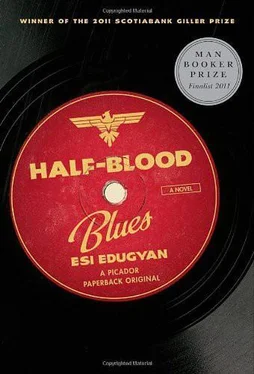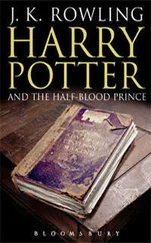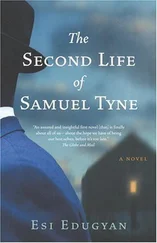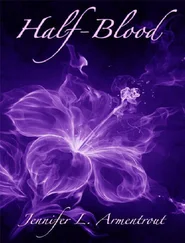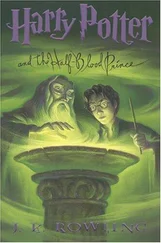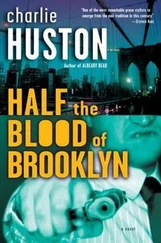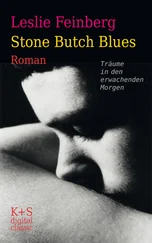‘I ain’t likely to forget them,’ said Chip.
‘Sid?’
‘I don’t know,’ I said. ‘It ain’t about liking them, is it.’
‘No,’ said Hiero, ‘it ain’t. Let me show you the rest.’
We trailed behind him. He walked through the house without hesitation, like he wasn’t blind at all, moving down hallways, opening doors for us.
‘You sure you blind, brother?’ said Chip.
‘I been living here for years, Chip,’ said Hiero. ‘But you just go moving the damn furniture on me and you’ll see it get ugly, quick.’ He led us outside, along one wall of the house, to huge cellar doors. He pulled them back, dragging them through the grass. The interior was dim, musty like wet clothes. ‘They had a hell of a time renovating all this,’ he continued. ‘They was in far too much of a hurry. I wanted the cellar converted into storage, but they said the only way I could get more space was by digging down into the old floor. Fifty centimetres down. It liked to have killed me, the news. Meant getting rid of the old concrete, casting a new base with under-floor heating cables beneath it. Was a hell of a job — for months the house was full of folks. But it’s done now.’
I watched his face as he spoke. Waiting for a flicker of something — bitterness, resignation. Anything that would tell me where we stood after all these years. But there was nothing. Just his pleasure, his joy. The poor man didn’t know a thing, ain’t got no inkling of what happened all those years ago.
We went in then. The bulb was out and he ain’t troubled to replace it, so the only light we had was what come in with us, through those big doors. In the shadows I could see dozens of strange shapes. And staring at those monolithic statues, the vast broken faces, their grotesque bodies, I got to thinking, maybe he did figure it out. Maybe he known right off, after his arrest, maybe he’d spent these long decades making peace with it.
‘Sid,’ Chip called to me. ‘This one sort of look like you.’
My shoes scraped as I walked over.
It was big, thin, lean in the jaw. It was clutching a second figure to itself, as if to protect it. The second figure was big in the belly, like a woman heavy with child. Then it hit me: it wasn’t a woman, but a double bass.
‘I don’t think so,’ I said softly.
I looked over at Hiero’s face, and known then without any doubt he didn’t know what I’d done to him all those years ago. I stared at the figure.
‘So he blind and now you deaf?’ said Chip.
‘What you say?’ I said.
‘Hiero just asked if you could eat now.’
Hiero smiled, but tightly, his lips almost closed. ‘Please. It’s Thomas now.’
‘Thomas,’ said Chip, glancing at me. ‘Sorry.’
The kid’s sightless eyes seemed to meet mine. ‘Sid? You hungry?’
‘I could eat,’ I said.
Dinner was pickled herring and salad with store-bought sticky buns for dessert. We sat on stools pulled out from a closet, the table having only the one chair.
‘Apologies, gentlemen, for the spread,’ Hiero said with a precise flourish of his knife. ‘I’m down to the last of it. I have a girl who comes in, Ewa, she comes every three days with fresh groceries, changes the lights, cleans up. She be here tomorrow. I can do most things, but some things do get beyond you.’
Chip and I looked at each other, then looked guiltily away. You known we both wanted to ask about his eyes. Wanted to ask about his whole past, how he survived the camps and what had happened to him after, how he managed to make his way east and why he started going by Thomas — everything. But Hiero ain’t started in on none of that. He was witty, pleasant, full of good talk on just about every subject. But he ain’t gone near those years.
After dinner, he drawn out three glasses and a bottle of scotch.
‘I been saving this,’ he said. ‘A special occasion. Got to worrying I wasn’t going to have a chance to drink it.’
Chip chuckled. ‘Hell, brother, now we talking. Give me two knuckles.’
The day was failing but Hiero ain’t thought to turn on no lights. We said nothing, just sat in the gathering dark, drinking.
At last Chip cleared his throat. ‘I ain’t going to try to talk you into it. I mean, hell, brother, I thought about it. I did. Of coming up here, dragging you back, getting you some of what you deserve. It be a story for the ages. But I ain’t going to push.’
What a damn fool I am. A damn blind fool. Cause all a sudden I understood why Chip been so eager to come. I shook my head.
‘You pushing now,’ Hiero smiled gently. ‘But there ain’t no point, Chip. All that’s another life.’
Chip poured himself another glass. ‘You saying it ain’t still in you? You telling me that?’
‘Do it even matter?’ said Hiero. ‘You famous, Chip. You don’t need me.’
Chip looked sort of sad at that. After a while, he said, ‘Is that why you didn’t write all those years? You thought I’d try to get you to come back?’
Hiero shrugged.
‘And you don’t miss it? You don’t miss it for real?’
‘No.’
‘You don’t miss the kind of purpose it give you?’
‘A man’s purpose ain’t in what he do, Chip.’
‘Ain’t it?’
Hiero turned his face toward me. ‘Ask Sid. He give it up.’
I sort of shrugged. I ain’t said nothing in a long while.
‘Sid?’ said Hiero. ‘I know you still here. Sid?’
‘I’m here,’ I murmured. And then, since he seemed to be waiting for it, I said, ‘Aw, I ain’t no kind of talent. Not like you two. It’s different.’
‘You think that makes it easier to give it up?’
I blushed. ‘Not easier. Just different. After the war, after all that, I just sort of ain’t wanted to play it no more.’
‘Why not?’ Hiero pressed.
‘I don’t know.’ I opened my hands uselessly, glanced over at Chip in the falling darkness. He said nothing. ‘I don’t know,’ I said again. ‘It was supposed to be this joyful music. And I just couldn’t find none of that joy in it no more.’
‘I don’t understand that,’ Chip interrupted. ‘I don’t understand that at all.’ He sounded frustrated. ‘The music is the joy. That’s how you find it again. By playing.’
Hiero looked sort of sad at that. ‘There’s all sorts of ways to live, Chip. Some of them you give a lot. Some of them you take a lot. Art, jazz, it was a kind of taking. You take from the audience, you take from yourself.’
‘But what it gives, it gives in spades.’
‘What do it give, Chip?’ I said. ‘You a great artist, but you a miserable man.’
Chip was quiet, turning his drink in front of him.
Hiero said nothing.
At last Chip said, ‘I tell you what I know. The world’s damn beautiful. But it’s an accidental beauty. What we do, it’s deliberate . It’s the one damn consolation you can offer not just you own life, but other lives you ain’t even met.’ He gave Hiero a long, thoughtful look. ‘You don’t owe the world nothing, Thomas. I know it. And you a good man. But it sure as hell breaks my heart, missing your music. There been this one brutal emptiness I been hauling around my whole life, and it’s that damn beautiful music of yours. I ain’t never stopped being lonely for it.’
Hiero, with that unnerving precision of the blind, reached across and grasped Chip’s big hand in the darkness.
‘It’s an old life,’ he said. ‘It’s an old life.’
I felt desolate, sitting there. I cleared my throat, stood unsteadily. ‘I reckon I got to turn in. Ain’t getting no younger.’
‘You welcome to,’ said Hiero. ‘But you know we just going to spend the night talking about you.’
Читать дальше
